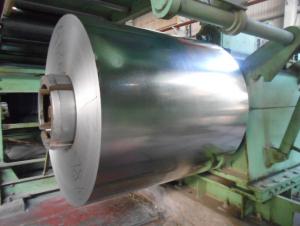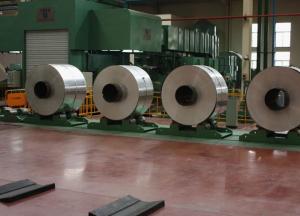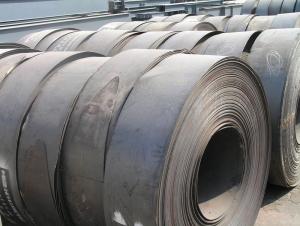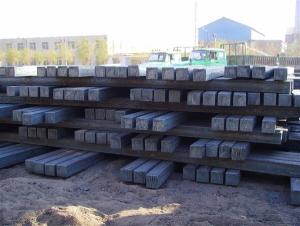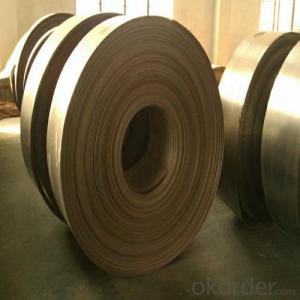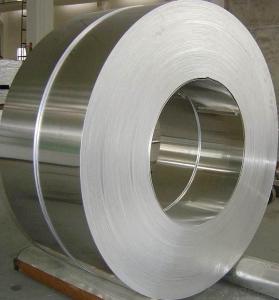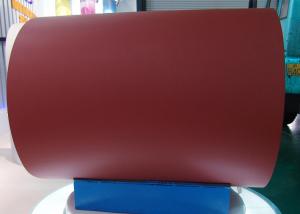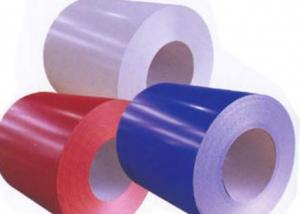Hot-dip Aluzinc Steel Building Roof Sheet in Coils of Prime Quality 0.29mm
- Loading Port:
- Tianjin
- Payment Terms:
- TT OR LC
- Min Order Qty:
- 50 m.t.
- Supply Capability:
- 20000 m.t./month
OKorder Service Pledge
OKorder Financial Service
You Might Also Like
1. Description of the Hot-dip Aluzinc Steel:
Hot-dip aluzinc steel structure is composed of aluminum-zinc alloy, consisting of 55% aluminum, 43% zinc and 2% at 600 ℃ silicon solidification temperature and composition, the entire structure is made of aluminum - iron - silicon - zinc, to form a dense quaternary crystals an alloy.
Hot-dip aluzinc steel has many excellent features: strong corrosion resistance, is three times the pure galvanized sheet; zinc surface with beautiful flowers, can be used as a building outside board.
Applications of hot-dip aluzinc steel:
1)Building: roof, walls, garages, soundproof walls, pipes and modular housing.
2)Automotive: muffler, exhaust pipes, wiper accessories, fuel tank, truck boxes, etc.
3)Appliances: refrigerator back, gas stove, air conditioners, microwave oven, LCD frame, 4)CRT-proof band, LED backlight, electrical cabinets, etc.
5)Farm: barn, sheds, silos, piping and other greenhouse.
6)Other: breaking heat insulation cover, heat exchangers, dryers, warm water, etc.
2.Main Features of the Hot-dip Aluzinc Steel:
• Excellent corrosion resistance
• High temperature oxidation resistance
• High hot reflectance
• Good manufacturability
•Beautiful appearance
•Surface coating
•Cost-effective
3.Hot-dip Aluzinc Steel Images
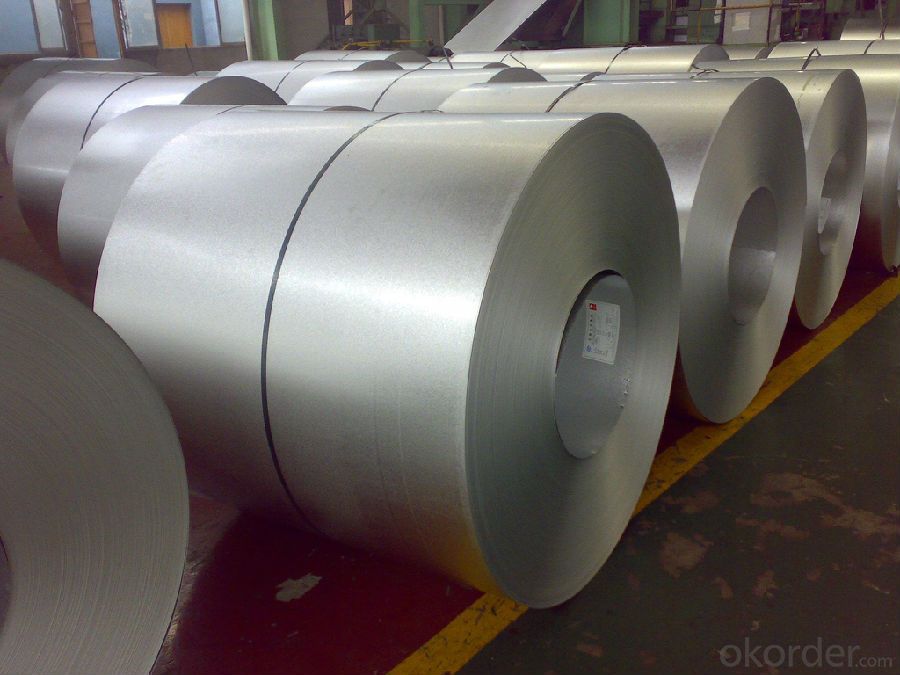
4.Hot-dip Aluzinc Steel Specification
AVAILABLE SPECIFICATION
HOT-DIP ALUZINC STEEL COILS | |
THICKNESS | 0.16mm-3.5mm |
WIDTH | 1250mm MAX |
COATING MASS | |
SPANGLE | Regular Spangle, Minimized Spangle, Zero Spangle |
SURFACE TREATMENT | Chromated / non-chromated, Oiled / non-oiled, Anti Finger Print |
COIL INNER DIAMETER | 508mm or 610mm |
HOT-DIP ALUZINC STEEL COILS | |||
COMMERCIAL QUALITY | ASTM A792M-06a | EN10327-2004 | JIS G 3321:2010 |
STRUCTURE STEEL | SS GRADE 230 SS GRADE 255 SS GRADE 275 SS GRADE 340 SS GRADE 550 | S250GD+AZ S280GD+AZ S550GD+AZ | SGLC440 SGLC490 SGLC570 |
2.5.FAQ of Hot-dip Aluzinc Steel
We have organized several common questions for our clients,may help you sincerely:
1.What advantages does your company have?
Cement : Annual capacity of 400 million tons, No. 1 in the world
Fiberglass: Annual capacity of 1 million tons fiberglass, No. 1 in the world.
Composite Materials — Carbon Fiber: Annual capacity of 10,000 tons PAN precursor and 4,000 tons carbon fiber, No. 1 in China
Composite Materials — Rotor Blade: Annual production capacity of 15,000 pieces, No.1 in China, Top3 worldwide
Glass: CNBM owns about 20 modern float glass product`ion lines, With annual capacity of 10 million square meters glass.
Light Weight Building Materials: Annual capacity of 1.65 billion square meters of gypsum board, No. 1 in the world.
Commercial concrete: Annual capacity of 0.35 billion cubic meters, No. 1 in the world.
Refractory Material: Annual capacity of 40,000 tons casting refractory, No.1 in the world.
2.What advantages do your products have?
Firstly, our base material is of high quality, Their performance is in smooth and flat surface,no edge wave ,good flexibility.
Secondly, high quality zinc ingoats, 97.5% zinc,1.5% silicon,1% others, the same zinc coating measured by metal coating thickness or by zinc weight
Thirdly, high precision: Tolerance strictly according to ASTM or JISG standard even more rigid.
We have full stes of testing equipment(for t best, cupule,chromatism,salt spray resistance, etc) and professional engineers.
3.Could you let me approach about your company in Dubai?
Located at Jebel Ali Free Zone in Dubai, CNBM Dubai Logistics Complex is adjacent to -Jebel Ali sea port-the largest port in UAE and Al Maktoum Airport-the largest airport in the world, which covers an area of 50,000 square meters, including an fully enclosed warehouse by 10,000 square meters, an open yard by 25000 square meters, and 13 standard unloading platform. CNBM Dubai Logistics Complex formally put into operation on August 1, 2013. Dubai Logistics Complex will commit itself to build the most professional and most influential building materials distribution center of China’s building materials industry in the UAE and throughout the Middle East and Africa.
- Q:How do steel products contribute to the construction of hospitals and healthcare facilities?
- Steel products play a crucial role in the construction of hospitals and healthcare facilities. They are used in various applications, such as structural frameworks, support beams, and roofing systems. Steel's strength and durability ensure the safety and stability of these structures, making them capable of withstanding heavy loads and adverse weather conditions. Additionally, steel's versatility allows for flexible building designs and the incorporation of advanced technologies, such as medical equipment and electrical systems. Overall, steel products are essential in creating reliable, efficient, and modern healthcare facilities that can provide high-quality medical care to patients.
- Q:How is steel used in the construction of stadiums and sports facilities?
- Steel is commonly used in the construction of stadiums and sports facilities due to its strength, durability, and versatility. It is used for the framework, roofing, and support structures, allowing for large open spaces and grand designs. Steel also provides the necessary structural integrity to withstand heavy loads, ensuring the safety of the venue. Additionally, steel allows for quick and efficient construction, making it a preferred choice in the fast-paced world of stadium development.
- Q:How is steel used in the fabrication of bridges?
- Steel is commonly used in the fabrication of bridges due to its high strength and durability. It is used to construct the superstructure of the bridge, including the beams, girders, and trusses, providing the necessary support and load-bearing capacity. Steel is also used in the fabrication of bridge decks, ensuring a sturdy surface for vehicles and pedestrians to cross. Additionally, steel allows for efficient and cost-effective construction, as it can be prefabricated off-site and easily assembled on-site, making it a popular choice in bridge fabrication.
- Q:What are the uses of steel in the construction of schools and universities?
- Steel is widely used in the construction of schools and universities due to its strength, durability, and versatility. It is used in various structural components such as beams, columns, and frames, providing a sturdy and safe infrastructure. Additionally, steel allows for large open spaces and flexible floor plans, accommodating different educational needs and future expansions. Its fire-resistant properties also enhance the overall safety of the buildings.
- Q:How is steel produced?
- Steel is produced through a process called steelmaking, which typically involves the combination of iron ore, coal, and limestone in a blast furnace. The iron ore is first mined and then refined into iron through a series of heating and cooling processes. The refined iron is then combined with coal and limestone in the blast furnace, where it is heated to extreme temperatures to remove impurities and convert it into molten iron. This molten iron is then further processed to remove any remaining impurities and adjust its carbon content to create different grades of steel.
- Q:How is steel wire galvanized for electrical applications?
- Steel wire is galvanized for electrical applications by immersing it in a bath of molten zinc. This process, known as hot-dip galvanizing, creates a protective coating of zinc on the surface of the wire. The wire is first cleaned to remove any dirt or oil, and then it is dipped into the molten zinc, ensuring complete coverage. The zinc coating provides excellent corrosion resistance to the steel wire, making it suitable for electrical applications that require durability and longevity.
- Q:What are the uses of steel mesh in construction?
- Steel mesh is widely used in construction for various purposes. It is primarily used as reinforcement in concrete structures to improve their strength and durability. Steel mesh provides reinforcement by distributing the load across a larger area and preventing cracks from forming in the concrete. Additionally, it helps to control shrinkage and thermal expansion, enhancing the overall stability of the structure. Steel mesh is also used for fencing and barriers, providing security and protection in construction sites and other areas. Overall, steel mesh plays a crucial role in construction by enhancing the structural integrity and safety of buildings and infrastructure.
- Q:What are the safety regulations and standards for steel product manufacturing?
- The safety regulations and standards for steel product manufacturing involve several key aspects. Firstly, the Occupational Safety and Health Administration (OSHA) sets guidelines for workplace safety, including requirements for personal protective equipment, machine guarding, and hazard communication. Additionally, the American National Standards Institute (ANSI) develops standards related to steel product manufacturing, such as specifications for material properties, testing methods, and quality control processes. Furthermore, the American Society of Mechanical Engineers (ASME) provides codes and standards for the design, fabrication, and inspection of steel products to ensure their safe and reliable operation. Compliance with these regulations and standards is crucial to prevent accidents, minimize hazards, and maintain the overall safety of steel product manufacturing processes.
- Q:What are the common types of steel products used in the marine industry?
- The common types of steel products used in the marine industry include marine-grade stainless steel, galvanized steel, and high-strength low-alloy (HSLA) steel. These materials are chosen for their corrosion resistance, durability, and structural strength, making them suitable for various marine applications such as shipbuilding, offshore structures, and marine equipment.
- Q:What are the different types of steel forgings and their applications?
- There are several types of steel forgings, including open die forgings, closed die forgings, and seamless rolled ring forgings. Open die forgings are used for large components that require minimal precision, such as shafts and blocks. Closed die forgings are utilized for more complex shapes and tighter tolerances, often found in automotive and aerospace industries. Seamless rolled ring forgings are commonly used for components that require high strength and durability, like gears and bearings. Each type of forging has unique applications depending on the specific requirements of the part.
1. Manufacturer Overview |
|
|---|---|
| Location | |
| Year Established | |
| Annual Output Value | |
| Main Markets | |
| Company Certifications | |
2. Manufacturer Certificates |
|
|---|---|
| a) Certification Name | |
| Range | |
| Reference | |
| Validity Period | |
3. Manufacturer Capability |
|
|---|---|
| a)Trade Capacity | |
| Nearest Port | |
| Export Percentage | |
| No.of Employees in Trade Department | |
| Language Spoken: | |
| b)Factory Information | |
| Factory Size: | |
| No. of Production Lines | |
| Contract Manufacturing | |
| Product Price Range | |
Send your message to us
Hot-dip Aluzinc Steel Building Roof Sheet in Coils of Prime Quality 0.29mm
- Loading Port:
- Tianjin
- Payment Terms:
- TT OR LC
- Min Order Qty:
- 50 m.t.
- Supply Capability:
- 20000 m.t./month
OKorder Service Pledge
OKorder Financial Service
Similar products
New products
Hot products
Hot Searches
Related keywords
